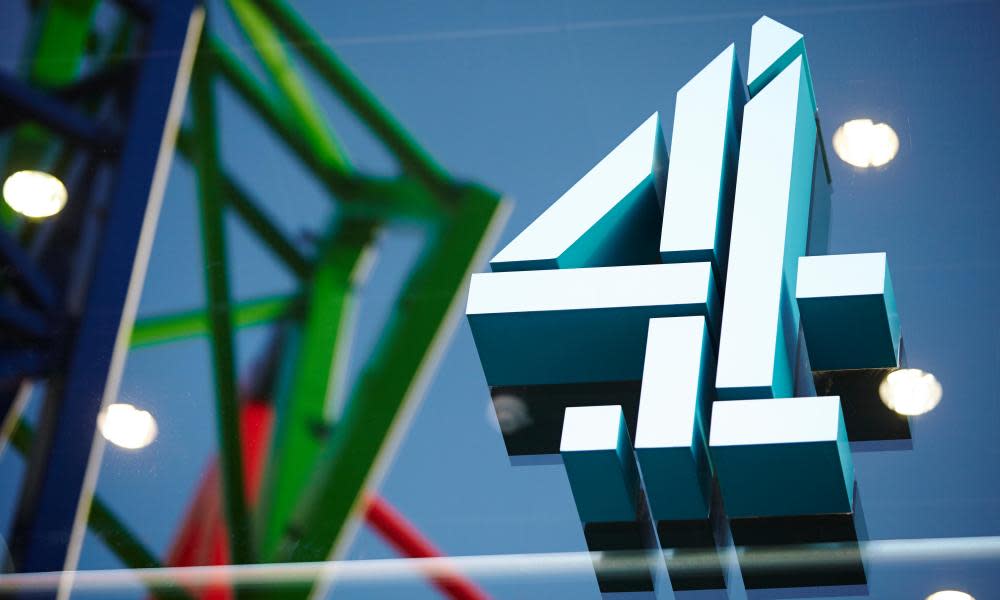The great British broadcasting shake-up – all you need to know

The culture secretary Oliver Dowden has announced major plans to shake up the British broadcasting landscape, including the potential sale of Channel 4 and tightening regulations governing content on streaming services such as Netflix.
What is privatisation?
Privatisation is the transfer of ownership of a government or publicly owned organisation to private companies or individuals. The government is to consult on a potential sale of Channel 4, as part of a review of the ownership and remit of the government-controlled broadcaster. Dowden said the aim of the review is to “help make sure Channel 4 keeps its place at the heart of British broadcasting”, amid increased competition from global streaming giants such as Netflix.
Who owns Channel 4?
Channel 4 was established by Margaret Thatcher’s government in 1982 to provide a culturally challenging alternative to BBC One, BBC Two and ITV. It is publicly owned but commercially funded. Unlike the BBC, which is funded through the £159-a-year licence fee its viewers must pay, Channel 4 has no financial support from the taxpayer.
How does it make money?
More than 90% of Channel 4’s income comes from selling TV advertising in the shows it broadcasts. Last year, Channel 4 made £934m in total revenues, with digital advertising growing to £161m, thanks to a surge in streaming of shows and box sets during the pandemics. The remaining 9% of income comes from operations including 4Studios, which creates digital content for advertisers, and new non-advertising partnership deals. Dowden has said that such a reliance on advertising, particularly traditional TV advertising as audiences turn to streaming services, makes Channel 4 “particularly vulnerable to market fluctuations”.
Is it profitable?
Channel 4’s remit has never been to make a profit – the money it makes is reinvested in commissioning and buying programmes from mostly British TV production companies, helping to support a key national industry. Last year, it made what it refers to as a pretax “surplus” of £74m, the largest in the broadcaster’s 38-year history, thanks to the huge bounce-back in the TV ad market in the second half of last year and the cutting of £150m from its £660m programming budget as the pandemic interrupted productions.
Related: Ministers’ rationale for privatising Channel 4 looks extremely flimsy
Who could buy it?
In 2016, a report commissioned by Channel 4’s board identified BT as the “most likely” UK company to bid for a privatised Channel 4. However, the broadcasting and technology landscape has changed dramatically since then, with BT now looking for a buyer or strategic partner for its own pay-TV business to defray costs as it focuses on full-fibre broadband and 5G mobile rollout. The report identified the most likely buyer overall as the US group Discovery – which is in the process of merging with WarnerMedia, the parent company of CNN, HBO and the Hollywood studio behind Batman and Harry Potter – or Channel 5 owner ViacomCBS. Foreign ownership of a key UK broadcaster may be seen as politically difficult.
What is Channel 4 worth?
While a price tag of £1bn was attached to Channel 4 at the last privatisation push, it is very difficult to provide a current estimate. Unlike other broadcasters such as ITV and the BBC, Channel 4’s remit means it does not have its own in-house production arm. While it has rights to show big hits like Bake Off and Gogglebox on linear TV and on its streaming services in the UK, the broadcaster does not own the rights to commercialise those shows around the world. The ownership of must-watch, “crown jewel” content has been the driver of the wave of media mergers and takeovers seen in recent years. Any potential buyer would need Channel 4’s model to be allowed to be drastically changed to increase margins and commercial opportunities.
Why is the government looking to tighten regulation of streaming services?
Global players such as Netflix, Amazon Prime and Disney have become staples in many homes across the UK, but they are not regulated to the same degree as traditional linear UK broadcasters such as ITV, the BBC and Sky. This means that while a BBC programme may face an investigation by regulator Ofcom, complaints about the accuracy of Netflix shows such as The Crown or documentary Seaspiracy have not been investigated.
What else is the government seeking to do to “level the playing field” for UK broadcasters?
The BBC, ITV, Channel 4 and Channel 5 get the best channel slots on traditional linear electronic TV guides, appearing at the top of the channel lists – a reward for being the UK’s public service broadcasters (PSBs). However, the “due prominence” regulations do not apply in an on-demand world, from catch-up services on Sky Q, to the layout of apps and programmes on smart TVs or on services such as Amazon Prime. The government is seeking to extend the rules to ensure PSBs get this same prominence on streaming, on-demand and internet-connected TVs.

 Yahoo Movies
Yahoo Movies 
